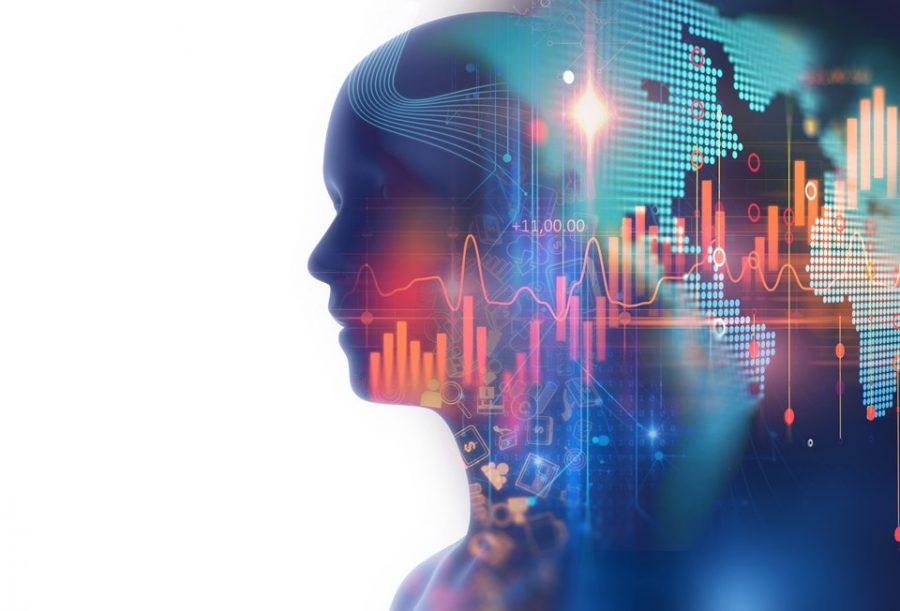Artificial Intelligence is Taking Over the World But Not in the Way You Think
There is someone on the internet who knows you–knows what you like, what you may search for next, and what you have searched for in the past. What most people do not expect is that the one watching you is not a person. The one watching you is a computer. Humans have been trying to replicate ourselves since early history. There have been countless examples of gadgets, robots, and programs made to replicate our own mind and likeness. So far, they have not had much success. But what if a machine was made that could replicate human intelligence? Could humans have a competitor for control on Earth?
Artificial intelligence (or AI) in its modern state is the attempt of computer scientists to make a computer resemble human smartness. When most people talk about AI they mean a more powerful type of AI, capable of taking over the world. In reality, anything with any type of intelligence at all can be bundled under the phrase, artificial intelligence. Even a basic computer that only adds ones and zeros could be considered basic AI. Since right now AI is not very intelligent yet, there is a low chance it will take over the world any time soon. Or will it?
AI has been a goal of engineers and computer scientists for a long time. People have been trying to design a thinking machine since the early 20th century. In 1950 Alan Turing released a paper about the Turing Test–a test to decide whether an AI is as intelligent as a human. Essentially, the test is based on a human’s ability to tell the difference between human language and that generated by a machine.
Early AI techniques did include some things used today such as the artificial neural network, which was not very usable in the 1950s. Major breakthroughs were being made; however, many techniques could be run on the still primitive hardware. But soon there was a bit of a winter; breakthroughs slowed, and AI slept a bit for a while.
Today, AI is exploding, mostly due to the recent success of the artificial neural network. These networks do bear a bit of a semblance to brains, but do not let that fool you; they are quite different. Neural networks were invented a long time ago but there was not enough processing power or data to train them on. In recent years, neural network algorithms have become more viable and very powerful. Neural Networks are very good at doing tasks that humans can do easily but cannot describe how they do. If you want to know how they work, you can watch this video series by 3Blue1Brown.
These neural networks and other similar machine learning techniques are almost everywhere you look. They are used by websites like Amazon and Google to guess what you like, for example. There are many kinds of neural network algorithms for doing things such as image analysis, guessing the next entry in a sequence (what companies use to guess what you want to look at), synthesizing language (to maybe pass the Turing test one day), and much more.
The simple, powerful machine learning principals can be applied to most algorithmic problems, but not all problems. The website YouTube applied machine learning in a gross misuse. YouTube put control of their advertising system at the hands of a naively-made and trained algorithm, which was given little training data. This caused disaster for Youtube because it removed monetization from content that was still fit to be advertised on which lost the site money and respect. So, machine learning is very powerful in the right hands and applied to the right problems, but it does not have uses in every field. While still imperfect now, how long could it be until machine learning is capable of tackling harder problems?
It is hard to say when AI will live up to its name and become intelligent, because right now these things are moving so fast, and developments are being made daily. We could have a highly intelligent computer in a few months, or it could be a decade. Maybe it is not known yet how long it will take for a machine to become as smart or smarter than a human, but what potential problems with that be that need to be solved before this event happens?
In our first example, based on the YouTube channel Computerphile, consider an arbitrary scientist has just made a robot with human-level intelligence or higher. The first command the machine is to carry out is get the scientist a cup of coffee as quickly as possible. The scientist turns the machine on and it instantly breaks through the wall, into the other room where the coffee maker is and makes the coffee. That did not go very well, but why? The machine is only trying to maximize its “reward statement,” the command it was told to carry out. The robot knew it could go around the wall to reach the coffee except it calculated that it would be faster to just go through the wall. This is the flaw with machine intelligence; if its only job is to follow one statement, it may follow it out in ways other than those expected by the creator.
Now let’s say the the scientist from earlier has put a button on the robot so that it can be tested again. If the button is pressed, the robot instantly shuts down. Ihe reward statement is also changed to prevent the robot from damaging property such as the wall. The robot begins walking and malfunctions in an arbitrary way (such as doing some unintended outcome, similar to breaking the wall) yet is still functioning. The scientist goes to press the off button; but the robot fights the scientist because if it was disabled it would not be able to complete its mission.
Next, the scientist tries assigning infinite reward to the button’s pressing so that the robot will not try to prevent the button from being pressed, and this time the robot instantly attacks them and forces them to press the button because this is what maximizes its rewards.
In a different context, an example from the the book Superintelligence by Nick Bostrom, say that this problem did not exist. A scientist creates a robot connected to the internet. The robot proceeds to take over the whole world and connect the scientist to some sort of pleasure system, dissolving his whole body until the entire world is a machine made only to energize the pleasure center of a brain. Imagining an AI taking over the world, only to maximize its reward statement is a common situation. This does seem a bit overkill, but a computer does not know what overkill is; it does not know when it has caused pain or when to stop. These are all things we need to think about when creating machine intelligence.
Machine and deep learning are growing quickly. It is a great field to be a part of. There a lot of YouTube channels with good resources such as Two Minute Papers, The Coding Train, and 3Blue1Brown. There are also multiple text resources online such as http://www.deeplearningbook.org/.







